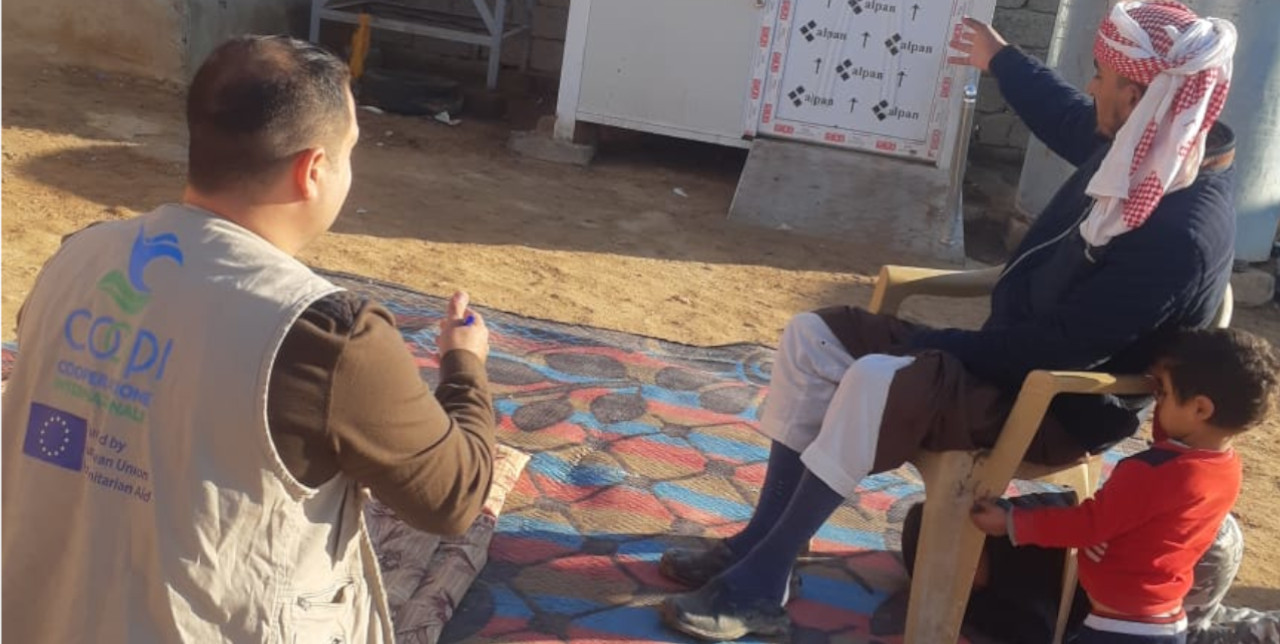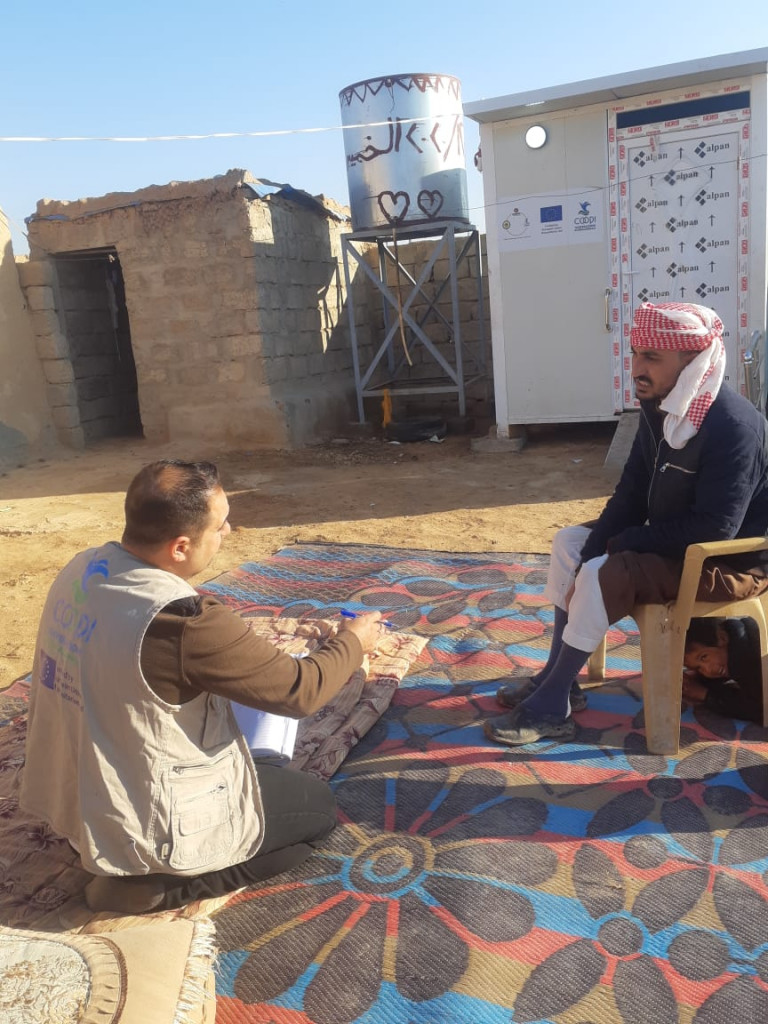29-12-2022 | di COOPI
Iraq. Tahseem and his new dignified and safe life thanks to the European Union
Tahseen Faleh Shakim is a young man living in the village of Al-Sailo Alqadim, in the governorate of Ninewa in Iraq. Tahseen has a congenital handicap and suffers from hemiplegia. Some time ago he was completely unable to move, then thanks to several surgeries, he is now able to make very simple movements. Because of his disability he was not able to use normal toilets, he needed someone to help him. Tahseen's mother is an elderly woman and the head of the household. She does not have sufficient physical capabilities to help him, she had to give up her job to avoid leaving her non-self-sufficient son alone. All these things have affected her mental health.
COOPI - Cooperazione Internazionale reached out to Tahseen and his family, recognising the precarious situation he found himself in. Thanks to the installation of the new toilet for the disabled, Tahseen no longer has to be constantly assisted by his mother: they and all members of his family are now relieved; this proper toilet for the disabled has alleviated much of their daily suffering and difficulties.
Tahseen's mother says:
I am an elderly woman, a widow and head of the family. Before, I could not work and leave Tahseen at home alone, but now I can go out and look for a job again. He no longer depends on me when he has to go to the toilet, now my son is no longer ashamed, he has regained his dignity.
COOPI has been present in this area since April 2021 with the project "Provision of essential services to the displaced population living in underserved areas through WASH and Shelter in Iraq", funded by the European Union (Humanitarian Aid - ECHO). The project aims to improve access to water, sanitation and hygiene services, helping to provide protection to the most vulnerable populations, who are forced to continuously move and live in underserved areas and in critical housing conditions.
Since 2014, Iraq has been the scene of what has been described as one of the biggest humanitarian emergencies in recent years. The number of refugees moving within the country's borders has been around 1.6 million in the intervening years, while those progressively returning to their places of origin has been around 4.83 million. As of 2019, the government has decreed the closure of a large part of the official refugee camps, generating tens of thousands more displaced persons, often in informal camps with poor sanitary conditions. The system of primary public services, from health facilities to schools, is severely strained, resulting in socio-economic and social cohesion difficulties. Since 2019, we have also intervened with activities in the Water and Sanitation sector in Iraq, restoring water distribution and purification facilities destroyed during the ISIS occupation, as well as promoting the dissemination of good hygiene and water use practices.




 Iraq
Iraq
